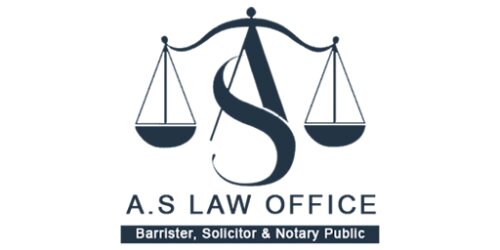Best Landlord & Tenant Lawyers in Winnipeg
Share your needs with us, get contacted by law firms.
Free. Takes 2 min.
Free Guide to Hiring a Real Estate Lawyer
List of the best lawyers in Winnipeg, Canada
About Landlord & Tenant Law in Winnipeg, Canada
Landlord and tenant law in Winnipeg, Canada, is designed to regulate the relationship between property owners and renters. This legal framework governs the rights and responsibilities of both parties, ensuring fair treatment and preventing conflicts. The main legislation overseeing these matters is the Residential Tenancies Act, which outlines specific guidelines on lease agreements, rental increases, maintenance, evictions, and other essential aspects of renting residential properties in Winnipeg. Understanding these laws is crucial for both landlords and tenants to maintain a positive and legally compliant rental experience.
Why You May Need a Lawyer
There are several situations where legal assistance might be necessary in the realm of landlord and tenant relations. Common scenarios include disputes over rent increases, lease agreement violations, eviction notices, security deposit disagreements, and maintenance or repair issues. Additionally, legal help may be required if you believe you are being discriminated against or if your landlord is not complying with safety regulations. A lawyer specializing in landlord-tenant law can provide guidance, represent you in disputes, and ensure your rights are protected under the Residential Tenancies Act.
Local Laws Overview
Winnipeg's Residential Tenancies Act provides the foundation for landlord-tenant relations. Key aspects include the requirements for a written lease, rent increase regulations, security deposit handling, notice periods for ending tenancies, and rules regarding property maintenance. For instance, landlords must provide a safe and habitable living environment, addressing necessary repairs promptly. Additionally, there are clear guidelines on how landlords can legally increase rent and the amount of security deposit they can charge. Understanding these details can help avoid common legal issues between landlords and tenants.
Frequently Asked Questions
What is a rental agreement?
A rental agreement or lease is a contract between a landlord and tenant that outlines the terms and conditions of the rental property, including rent amount, payment date, duration of tenancy, and rules regarding the property's use.
Can my landlord increase my rent anytime?
No, the Residential Tenancies Act specifies conditions under which rent can be increased, including a required notice period of at least 3 months and certain anniversary dates on which increases can occur.
What can I do if my landlord is not making necessary repairs?
If your landlord fails to address necessary repairs, you can contact the Residential Tenancies Branch to file a complaint and seek assistance in resolving the issue.
How much notice must I give before vacating the property?
Typically, tenants must provide at least one full rental month of notice before vacating the property, though different situations (such as breaches) can alter this requirement.
Can a landlord enter my rental unit without notice?
Landlords generally must provide at least 24 hours’ notice to enter a rental unit and can only do so for specific reasons such as repairs or inspections, except in emergencies.
What can I do if I'm facing eviction?
If facing eviction, you should review the eviction notice and seek legal advice as soon as possible. You might resolve the issue by negotiating with the landlord, or you may need to contest the eviction legally if it's unjustified.
How is a security deposit handled?
Landlords are required to place security deposits in trust and can only use them to cover damages beyond normal wear and tear or unpaid rent, with specified timelines for return upon lease termination.
What happens if my landlord sells the building?
If a property is sold, your lease and rights as a tenant usually remain intact. The new owner assumes the responsibilities of the landlord under your existing lease agreement.
Who pays for utilities?
Utility payment responsibilities should be outlined in the lease agreement. Either party can be obligated to pay, depending on what was agreed upon.
Am I allowed to sublet my apartment?
Subletting is often permitted but usually requires the landlord's consent. The terms and conditions should be detailed in the lease agreement.
Additional Resources
The following resources can provide further assistance and information:
- Residential Tenancies Branch: This is the main government agency administering landlord and tenant law in Manitoba. They provide resources, information, and assistance with disputes.
- Legal Clinics: Community-based legal services may offer free or low-cost advice for tenants needing assistance.
- Law Society of Manitoba: Offers a lawyer referral service for those seeking professional legal counsel.
- The Online Tenancies Guide: An online resource detailing the rights and responsibilities of tenants and landlords.
Next Steps
If you find yourself needing legal assistance in landlord and tenant matters, consider the following steps:
- Evaluate Your Situation: Clearly identify the issue and gather any relevant documentation such as your lease, communication records, and evidence of disputes.
- Seek Legal Advice: Contact a lawyer specializing in landlord-tenant law or reach out to local resources such as the Residential Tenancies Branch for guidance.
- Utilize Mediation Services: If direct negotiation fails, consider using mediation services offered by the Residential Tenancies Branch to resolve disputes amicably.
- File a Formal Complaint: In unresolved cases, you may need to file a formal complaint or claim with the Residential Tenancies Branch, following their specific procedures.
Addressing landlord-tenant issues early and informedly can often lead to more favorable outcomes and quicker resolutions.
Lawzana helps you find the best lawyers and law firms in Winnipeg through a curated and pre-screened list of qualified legal professionals. Our platform offers rankings and detailed profiles of attorneys and law firms, allowing you to compare based on practice areas, including Landlord & Tenant, experience, and client feedback.
Each profile includes a description of the firm's areas of practice, client reviews, team members and partners, year of establishment, spoken languages, office locations, contact information, social media presence, and any published articles or resources. Most firms on our platform speak English and are experienced in both local and international legal matters.
Get a quote from top-rated law firms in Winnipeg, Canada — quickly, securely, and without unnecessary hassle.
Disclaimer:
The information provided on this page is for general informational purposes only and does not constitute legal advice. While we strive to ensure the accuracy and relevance of the content, legal information may change over time, and interpretations of the law can vary. You should always consult with a qualified legal professional for advice specific to your situation.
We disclaim all liability for actions taken or not taken based on the content of this page. If you believe any information is incorrect or outdated, please contact us, and we will review and update it where appropriate.













